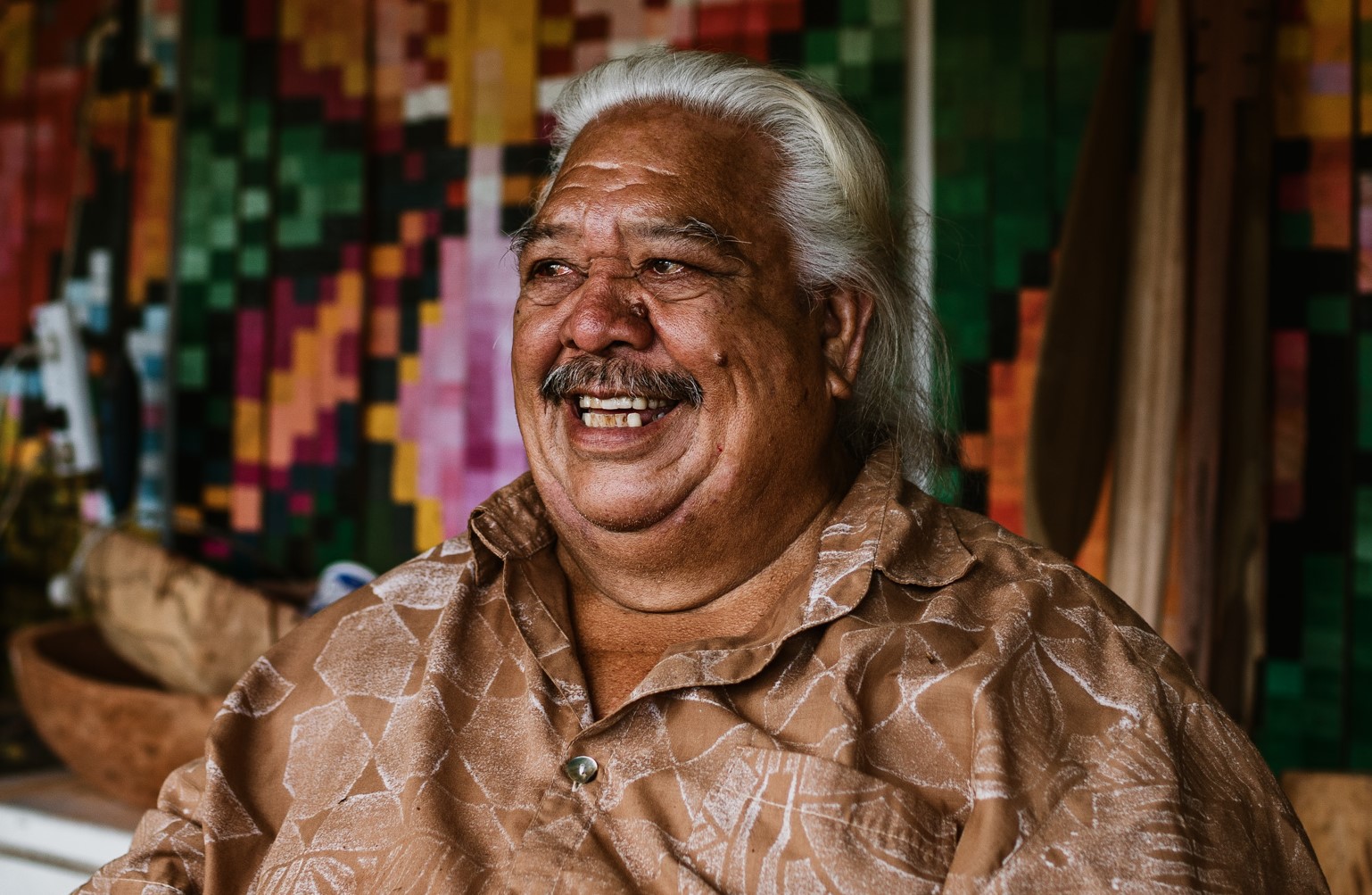Michael Tavioni: Water tariff lacks commonsense
Wednesday 6 November 2024 | Written by Supplied | Published in Editorials, Opinion

Mitaera Ngatae Teatuakaro Michael Tavioni BEM. Photo: Supplied/22060607
For today’s column I was writing about some other issue but two articles in last week’s Cook Islands News kept bothering me. Michael Tavioni writes.
The first was ‘TAU threatens whistleblower’ and the other was ‘TTV believes tariffs will lead to conservation of water’.
In the article about To Tatou Vai, their belief that tariffs will force people to use less water absolutely lacks common sense.
Also, I take issue with their statement that water is a commodity. I will repeat myself: Water is a life-sustaining, god-given element, the same as air. You cannot compare it to minerals – man cannot and does not drink oil extracted from the ground in order to stay alive.
The comparison of water to minerals to justify its being treated as a commodity is absurd. What is happening here is that the people of this country are being forced to embrace a form of governance from other countries. But taxing people on water use is like putting a band-aid on a boil. The boil will continue to fester and the pain will continue.
Common sense says you should address the core of the problem. And it is common knowledge that the great increase in demand for water is a consequence of the great increase of tourists visiting this country.
The people of this place are not responsible for the increase in demand for water – it is the tourist industry. So our government must stop this nonsense – retain some of your dignity and do the right thing.
Increase the supply of water so both our people and the tourist industry can have all the water they need. This island is blessed with regular rain and millions of litres of water run out into the sea. The simple answer is to increase the water-holding capacities of the existing water reservoirs, build more reservoirs and good-sized water storage tanks.
If you think that taxing water will resolve the present supply problem, you are making a big mistake. The well-financed arm of government dedicated to placing more bums on incoming tourist planes will naturally increase the demand for water. Anyone with a minimum of education understands this scenario of demand and supply.
I wish to remind the government that I will never pay for water that comes from lands of which I am a part-landowner. I am now in the process of organising for a water tank to be installed at my home, plus a well to supply water for my other agricultural needs, but I have a question – does Government have the real right to disconnect the water supply to my home if I refuse to pay?
As an after-thought, I would like to add that tourists come to my gallery all the time and they say they are happy to pay $50 to help alleviate our water problems. My friends who own tourist accommodations have also had the same conversation with their quests and they are happy to pay also.
Now the other story that bothered me – ‘TAU threatens whistleblower’. What exactly is a whistleblower? It sounds as if the word is used to accuse someone of leaking secret, harmful information – or the actual truth regarding disastrous incidents.
I am trying to understand how the word ‘whistleblower’ fits into the context of an honourable man concerned about the safety and lives of his working colleagues.
This particular story showed TAU focusing on some negative aspects of Mr Hideki Date’s service with the department and much of the same article was about threats to sue him if he did not stop divulging more information concerning the recent electrocution incident where four TAU workers were hurt.
These injured men are some mother’s son, someone’s father, someone’s uncle. Some of what happened became public knowledge the same day the incident occurred. More information about the incident has already become public knowledge since then. The problem with hearsay is that some information is accurate, some is added to, and some is incorrect.
But when what we write ends up in a public newspaper, we end up showing the readers how wise we may be, or how stupid we can become – especially when we have something to hide or to cover up to stop our bosses from knowing our inefficiencies.
I am also concerned for our people’s safety in their respective workplaces. In regard to this particular incident, please be transparent – it is the most honourable way towards resolving the problem.
Honesty in divulging the truth about what happened and identifying the parts of the system that need to be looked at and improved is the path to follow.
Stop threatening Mr Hideki Date. Stop passing the buck. Address the issues at hand and work towards enhancing the ability of TAU to carry out its important public services. To my knowledge and from what I have been told by some of his colleagues, Mr. Date is a good man, a good worker, and he was appreciated by those who worked close to him.
To round off, I would suggest that TAU be very careful about using the word ‘SUE’, because Date’s going public about the incident is due to his concern for his own safety and those of the people that he worked with.
The word ‘SUE’ is also something that those men who were hurt in the incident might play with and then decide to use against TAU instead.
Perhaps it might help if they are compensated as quickly as possible before they become fully educated about the meaning of that term ‘SUE’.














































